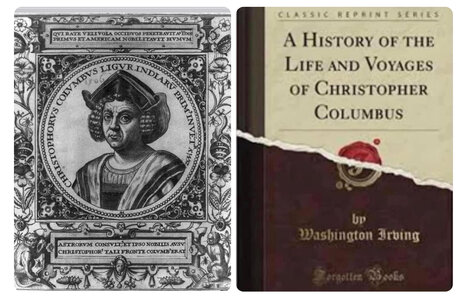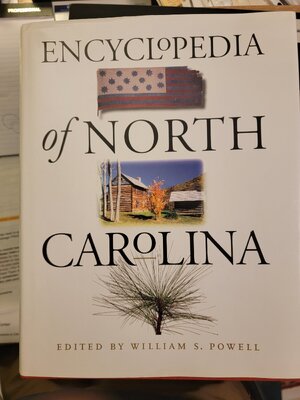donbosco
Inconceivable Member
- Messages
- 3,703
Historiography is the study of how history has been written. It is a part of the discipline that is, at least to me, pretty misunderstood and under-appreciated. The historical character Columbus serves as a good example for my point. The Genoese sailor, who worked for the Spanish, was written into school books and celebrated as a hero throughout my years of public schooling. A good deal of that mythology was based on ‘A History of the Life & Voyages of Christopher Columbus,’ a mainly fictional account written by Washington Irving in 1828. Yes. THAT Washington Irving — the ‘Legend of Sleepy Hollow’ Washington Irving.
Irving created of Columbus the increasingly popular frontier caricature of the famous ‘Self-Made Man’ who overcame all odds to realize his dream of fame, fortune, and a better ‘Christian’ world for all. Well, Columbus became (in)famous to be sure. In Irving’s time writers played particularly fast and loose with facts. Plenty still do, but historians, proper, trained historians who offer up their attributions (footnotes, bibliographies) in depth for all readers to easily access, do not.
The story of Columbus’ across time is a good example of the worth of historiography. Plenty of other topics like The Life of Lincoln, The Decision to Use Atomic Weapons, and Slavery in the Americas are good examples as well of exactly why historical topics need constant attention and revision by people who both research and teach professionally.
No one reading this here is any longer blinded by the hagiography of Washington Irving’s biography of Columbus but we’ve still got so many more stories in need of revisiting. Right now the process has begun in this country of digging deeper into the full narrative of enslavement in our larger national saga. That pursuit, aided by a deeper understanding of historiography, has caused a great fear of the truth to rise up among modern conservatives. They seem to believe that past reality is an enemy of the nation, that those who seek to hew closer and closer to how things really were are ‘America-Haters.’ They really couldn’t be more wrong about real historians and teachers. Full cognizance, understanding, and acknowledgment of how events transpired in the past are key to moving forward — to improving life for one and all. Now if that does not sound like the proper course then maybe mythology is your refuge — fear your best friend — and constitutional Democratic-Republicanism the bane of your existence.
#OTD in 1492 Columbus sailed from Palos bound west — nigh all believed the world round — Columbus believed it smaller than most, thus Asia closer than it was. His voyage launched invasion, conquest, and colonization. Today in History - August 3
Irving created of Columbus the increasingly popular frontier caricature of the famous ‘Self-Made Man’ who overcame all odds to realize his dream of fame, fortune, and a better ‘Christian’ world for all. Well, Columbus became (in)famous to be sure. In Irving’s time writers played particularly fast and loose with facts. Plenty still do, but historians, proper, trained historians who offer up their attributions (footnotes, bibliographies) in depth for all readers to easily access, do not.
The story of Columbus’ across time is a good example of the worth of historiography. Plenty of other topics like The Life of Lincoln, The Decision to Use Atomic Weapons, and Slavery in the Americas are good examples as well of exactly why historical topics need constant attention and revision by people who both research and teach professionally.
No one reading this here is any longer blinded by the hagiography of Washington Irving’s biography of Columbus but we’ve still got so many more stories in need of revisiting. Right now the process has begun in this country of digging deeper into the full narrative of enslavement in our larger national saga. That pursuit, aided by a deeper understanding of historiography, has caused a great fear of the truth to rise up among modern conservatives. They seem to believe that past reality is an enemy of the nation, that those who seek to hew closer and closer to how things really were are ‘America-Haters.’ They really couldn’t be more wrong about real historians and teachers. Full cognizance, understanding, and acknowledgment of how events transpired in the past are key to moving forward — to improving life for one and all. Now if that does not sound like the proper course then maybe mythology is your refuge — fear your best friend — and constitutional Democratic-Republicanism the bane of your existence.
#OTD in 1492 Columbus sailed from Palos bound west — nigh all believed the world round — Columbus believed it smaller than most, thus Asia closer than it was. His voyage launched invasion, conquest, and colonization. Today in History - August 3


